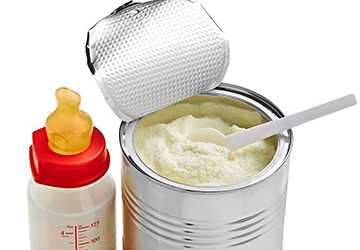Who Should Use Organic Baby Products?
In the contemporary era, as concerns for the environment and health consciousness reach unprecedented levels, many parents gravitate towards organic products for their infants. The pivotal question arises: Who should choose organic? This piece explores the advantages of organic baby products, delineates the distinctions between organic and non-organic baby items, and offers guidance to readers on selecting the most suitable options for their infants.

Deciphering Organic Baby Products
Before diving into who benefits most from these products, it's crucial to comprehend their unique characteristics. Organic baby products are crafted from materials cultivated without synthetic pesticides, fertilizers, or genetically modified organisms (GMOs). Such an approach champions a healthier ecosystem and guarantees that the items in contact with your infant's skin are devoid of potentially harmful chemicals.
Benefits of Organic Baby Products
● Priority on Safety: The foremost benefit of organic baby products is their inherent safety. The absence of harmful chemicals significantly reduces the likelihood of skin irritations or allergic responses in infants.
● Eco-Friendly Choice: Opting for organic is a testament to supporting sustainable agriculture practices, which have a reduced impact on the environment compared to traditional farming methods.
● Enhanced Long-term Health: Minimizing exposure to chemicals early may foster improved health prospects.
These advantages of organic baby products underscore the rationale behind the growing preference for organic alternatives among parents.
Ideal Candidates for Organic Products
The choice to switch to organic is a personal one, yet specific demographics may find these products especially appealing:
Health-Conscious Parents:
Individuals aware of the potential chemical risks may lean towards organic products to mitigate health hazards.
Proponents of Sustainability:
Families that hold environmental sustainability dear may find that organic baby items resonate with their principles.
Infants with Sensitive Skin:
The gentle nature of organic products makes them an optimal choice for babies predisposed to allergies or skin afflictions.
Households with Allergy Histories:
Infants born into families with a noted history of allergies, respiratory issues, or other sensitivities benefit considerably from organic items. These items, devoid of abrasive chemicals and irritants, help diminish the infant's encounter with allergens, potentially averting the development of allergic responses.
Holistic Lifestyle Adopters among New Parents:
Parents newly introduced to parenthood who adopt a holistic lifestyle centred around natural and organic practices are poised to incorporate these principles into their parenting. Organic infant products, devoid of artificial additives, resonate with a holistic lifestyle, ensuring the infant's surroundings remain as uncontaminated and free from toxins as possible.
Eco-aware Consumers:
Consumers with a deep-seated concern for their environmental footprint might gravitate towards organic infant products. These individuals acknowledge the eco-friendliness and reduced carbon output associated with organic agriculture, aiding in safeguarding our environment for the coming generations.
Informed Consumers Demanding Clarity:
Consumers who are well-versed and informed and actively seek clarity regarding products' origins, components, and production methods may prefer organic options. They appreciate the rigorous standards required of organic items, from the absence of pesticides to the utilization of non-toxic processes in production.
Urban Dwelling Families:
Families residing in cityscapes, often confronted with higher levels of pollution and toxin exposure, may opt for organic infant products as a countermeasure to these environmental hazards. Organic apparel, sleeping essentials, and skincare offer a purer, more secure environment for their infants amid the urban commotion.
Advocates for Animal Rights:
The ethical considerations of organic products frequently encompass animal welfare. Parents concerned with the ethical treatment of animals in the creation of infant products, like wool or down sourcing, might lean towards organic choices that guarantee the humane treatment of animals.
Selective Budget-conscious Households:
Despite the higher price point of organic products, households mindful of their spending might still find themselves as ideal candidates. They may strategically select essential organic items that most significantly affect their infant, such as nutritional formulas, skincare, or sleeping necessities, striking a balance between their budgetary limits and the wish for organic excellence.

Families Embracing Cultural or Dietary Preferences:
Families that follow specific cultural or dietary lifestyles, such as veganism or vegetarianism, might find organic baby products particularly appealing. These products often align with their ethical and nutritional standards, ensuring that even the family's youngest members are introduced to these values from the start. For example, organic baby foods and personal care items are developed with a focus on cruelty-free and plant-based ingredients, resonating with families committed to these lifestyles.
Tech-savvy Millennial Parents:
Millennial parents, known for relying on technology to make informed decisions, might also be drawn to organic baby products. This demographic values the ability to quickly research product backgrounds read reviews, and understand the benefits of organic versus non-organic items. They seek products that promise safety and sustainability and come with a transparent digital footprint they can trust.
Organic vs Non-Organic Baby Items
The primary distinctions in the comparison between organic and non-organic baby items revolve around their manufacturing processes and potential health implications. Non-organic items might harbour pesticide residues or synthetic compounds, which some parents want to avoid.
Making the Optimal Choice for Your Infant
Personal priorities, including health considerations, environmental factors, and financial constraints, influence the decision to use organic baby products. Here are several strategies for informed decision-making:
● Conduct Research: Investigate the certifications and standards governing organic products in your locale.
● Allocate Your Budget Judiciously: Given that organic products may come with a higher price tag, prioritize the items of utmost importance, such as skincare or apparel.
● Scrutinize Labels: Understand the ingredients and materials utilized in the products you select for your infant.
Conclusion
The advantages of organic baby products make them an attractive option for numerous families. By grasping who should choose organic and understanding the variances between organic and non-organic baby items, parents can make choices that reflect their values and priorities. Whether motivated by health concerns, ecological considerations, or the preference for naturally derived materials, organic baby products represent a viable and frequently advantageous choice for nurturing young ones.
Recall that the paramount choice for your infant is one imbued with love and consideration for their well-being and future.







